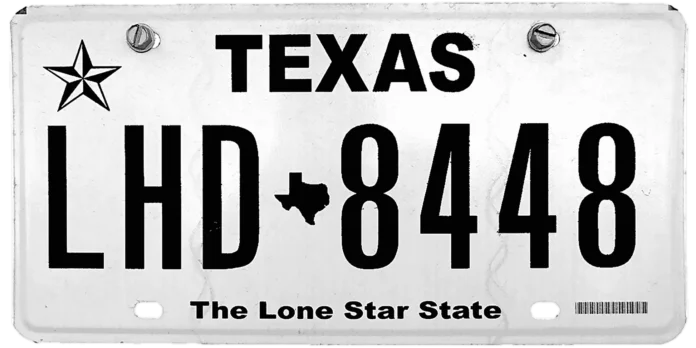Table of Contents
A License Plate Agency, often referred to as a DMV (Department of Motor Vehicles) office or a motor vehicle registration office, is a government facility where you can handle various vehicle-related services. These services typically include:
- Vehicle Registration: Getting a new license plate or renewing your current registration.
- Driver’s Licenses: Applying for, renewing, or replacing a driver’s license.
- Title Services: Applying for or transferring the title of a vehicle.
- Vehicle Inspections: Some agencies may offer or require vehicle inspections.
- Tax and Fees Payment: Paying any associated taxes or fees related to vehicle ownership and registration.
The exact services can vary by location and local regulations. If you need to visit an agency, it’s a good idea to check their website or call ahead to confirm what documents you’ll need and whether you need an appointment.
Is License Plate Agency vary country to country
License Plate Agency,
Yes, license plate agencies can vary significantly from country to country. Each country has its own system for issuing and regulating license plates, and these systems can differ in several ways:
- Issuing Authority: In some countries, license plates are issued by a national government agency, while in others, regional or local authorities handle the process.
- Design and Format: The design, color scheme, and format of license plates can vary. Some countries have standardized formats, while others have a range of designs. For example, the US has a variety of plate designs depending on the state, while in many European countries, there is a more uniform style.
- Registration Process: The procedures for registering a vehicle and obtaining a license plate can differ. Some countries require extensive documentation, while others have a more streamlined process.
- Renewal and Maintenance: Rules for renewing or updating license plates can vary. In some countries, plates must be renewed periodically, while in others, they are valid as long as the vehicle is registered.
- Special Plates: Many countries offer special license plates for government officials, diplomats, or other categories. The criteria and appearance of these special plates can differ widely.
- Plate Ownership: In some places, the license plate itself is owned by the vehicle owner and can be transferred between vehicles, while in others, the plate remains with the vehicle.
Understanding the specifics of how license plates work in a particular country typically requires looking at local regulations and practices.
Is License Plate Agency vary country to country
The prices for services at a License Plate Agency can vary depending on the state or region, as well as the specific services you need. Generally, common services include vehicle registration, title transfers, and personalized plates. Here’s a rough idea of what you might expect:
- Vehicle Registration: This can range from $20 to $200, depending on the vehicle type and the state.
- Title Transfer: Fees usually fall between $15 and $100.
- Personalized License Plates: Expect to pay an additional fee, often between $50 and $100, on top of the standard registration fees.
- Duplicate Plates or Titles: These can cost anywhere from $10 to $50.
For the most accurate and up-to-date pricing, you should check with your local License Plate Agency or its website.
Benefit of License Plate Agency
A License Plate Agency offers several benefits to vehicle owners and the community. Here’s a rundown of some key advantages:
- Convenience: These agencies often handle a range of services in one place, including vehicle registration, title transfers, and issuing new license plates. This can save time and reduce the need for multiple visits to different locations.
- Local Service: Many License Plate Agencies are locally operated, which means they can offer more personalized service and a better understanding of local regulations and requirements.
- Efficiency: They streamline the process of vehicle-related paperwork, which can help reduce wait times and expedite transactions.
- Support for Specific Needs: Agencies often provide specialized services like personalized or vanity plates, special permits, and disability plates, tailored to individual needs.
- Knowledgeable Staff: Staff at these agencies are typically well-versed in vehicle registration laws and can assist with various questions or issues, ensuring that you complete your transactions correctly.
- In-Person Assistance: For those who prefer face-to-face interactions or need help with complex transactions, visiting an agency provides a direct line to assistance and clarification.
- Community Engagement: Some agencies are part of community efforts and can offer information about local initiatives, services, and resources beyond just vehicle registration.
Overall, License Plate Agencies aim to provide a user-friendly experience for managing vehicle-related tasks, contributing to a smoother and more efficient process for vehicle owners.
Conclusion of License Plate Agency
The conclusion of the License Plate Agency typically involves summarizing the agency’s overall performance, effectiveness, and any recommendations for improvement. In a general sense, here’s how such a conclusion might be structured:
- Summary of Performance: Recap the key achievements and challenges faced by the agency over the evaluation period. Highlight successes in efficiency, customer service, and any innovations or improvements that were implemented.
- Impact Assessment: Discuss the impact of the agency’s operations on the community, including how effectively it has met the needs of its customers, and any benefits it has provided to local or state governments.
- Recommendations: Offer suggestions for future improvements based on the findings of the evaluation. This might include changes to procedures, adoption of new technologies, or additional training for staff.
- Future Outlook: Provide an overview of potential future developments or strategic goals for the agency. This could involve expanding services, improving digital interfaces, or other initiatives aimed at enhancing overall performance.
- Acknowledgments: Recognize the efforts of staff and stakeholders who contributed to the agency’s successes and improvements.
The goal of the conclusion is to provide a clear and concise overview of how well the agency has fulfilled its mission and to outline the path forward for continued success and improvement.
Top of Form
Bottom of Form
